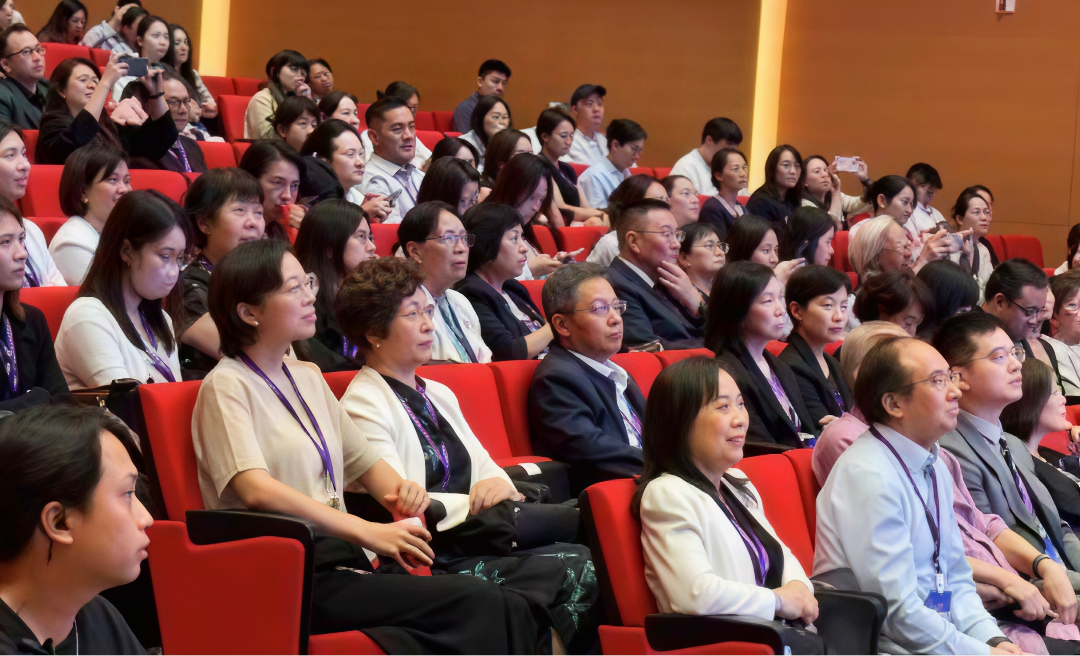Bountiful Harvest: A Review of Life Extension Plan Scientific Achievements
Release time:
2025-02-07
With the rapid development of science and technology, humanity's exploration of life has never ceased. During the 2023-2024 period, we witnessed a series of exciting scientific achievements. These not only made significant progress in fields such as anti-aging, gene editing, organ regeneration, and immunotherapy but also pointed the way for future medical research. This article reviews the key scientific achievements of this period and provides a glimpse into the latest advancements in the Life Extension Plan.
Anti-Aging and Cell Regeneration
In November 2023, the clinical trial of Senolytics drugs made a significant breakthrough: Senolytics drug UBX1325, developed by Mayo Clinic and Unity Biotechnology, completed Phase II trials, proving it can clear 30% of senescent cells in the human body, significantly improving retinal function in diabetic patients. This trial is the first to demonstrate the potential of Senolytics in delaying tissue degeneration in humans.
January 2024 saw China’s Institute of Zoology, led by Liu Guanghui, reveal the spatiotemporal heterogeneity of aging, proposing a new paradigm for aging interventions. This was selected among China's Top Ten Life Sciences Advances for 2024, laying the groundwork for developing safe and effective anti-aging drugs and therapies.
In January 2024, Harvard University's David Sinclair team published a new sustained-release technology for NAD+ precursor molecule NMN (Nicotinamide Mononucleotide), which can maintain blood concentration for 24 hours with a single oral dose, improving efficiency by five times over traditional formulations. This technology is now in the FDA's fast-track approval channel, aimed at treating age-related mitochondrial dysfunction.
Gene Editing and Therapy
In September 2023, telomere extension therapy made a breakthrough: Spain's CNIO delivered the telomerase gene via adenovirus, extending the lifespan of elderly mice by 40% without increasing cancer risk. This mechanism precisely regulates the active window of telomerase, avoiding the side effects of cellular immortalization.
In February 2024, the CRISPR 2.0 system was released: Feng Zhang's team, dual academicians of the National Academy of Sciences and Medical Academy in the USA, developed "Prime Editing 2.0," with single-base editing efficiency up to 90% and off-target rates below 0.01%. This system successfully repaired mutation genes in induced pluripotent stem cells from patients with Huntington's disease.
In July 2024, universal CAR-T cell therapy for autoimmune diseases was realized: Xu Huji's team from the PLA Navy Military Medical University Changzheng Hospital successfully cured autoimmune diseases like lupus and scleroderma with allogeneic CAR-T cells, creating a new therapeutic paradigm. Professor Xu Huji was selected as one of the "Top Ten People of 2024" in related international journals, and CAR-T cell therapy for autoimmune diseases was named one of the "Top Ten Scientific Breakthroughs of 2024." This therapy significantly reduced treatment costs, providing possibilities for widespread clinical application and marking a new phase in promoting universal CAR-T cell therapy in this field.
Organ Regeneration and Transplantation
In December 2023, 3D bioprinting yielded a fully functional kidney: ETH Zurich printed a prototype of a mini-kidney from a patient's autologous cells, featuring basic filtration and hormone secretion functions. Animal implantation survived over six months. This research used multi-nozzle extrusion technology to simultaneously print cells and blood vessel networks, providing a new solution for organ transplantation.
In March 2024, breakthroughs in pig-to-human xenotransplantation were realized: eGenesis successfully connected a genetically edited pig liver to a brain-dead patient, functioning normally for 72 hours without rejection. This study's key was knocking out Porcine Endogenous Retrovirus (PERV) and implanting humanized coagulation factor genes.
Immunotherapy and Cancer Defeat
In May 2024, a new strategy for nasopharyngeal carcinoma immunotherapy guided by precise staging and molecular typing was introduced: Sun Ying's team from Sun Yat-sen University Cancer Prevention and Treatment Center combined dynamic molecular typing with PD-1 inhibitors, reducing high-risk nasopharyngeal carcinoma patients' treatment failure risk by 42%. This new strategy drives the transformation of nasopharyngeal carcinoma treatment from a one-size-fits-all approach to a precision treatment paradigm, rewriting international diagnostic and treatment guidelines and being included in China’s Top Ten Life Sciences Advances.
In July 2024, the MRN complex's lactate modification regulation on tumor chemotherapy resistance mechanisms was discovered: Sun Yat-sen University's team found that lactation modification could enhance the MRN complex's function, deciphering the century-old mystery of the Warburg effect in tumor glycolysis. This mechanism developed the targeted drug sitagliptol, opening a new field of research on tumor resistance.
AI and Medical Applications
In October 2023, the Digital Twin Organ System was introduced: American company Synchron launched the "Digital Twin Liver," which simulates drug toxicity predictions in real-time metabolic data, achieving 92% accuracy. This system reduces human trial risks, promoting personalized medicine.
In January 2024, DeepMind's Longevity Target Predictions came forth: AlphaFold3, combined with AI language models, screened 147 new anti-aging targets, 32 of which were experimentally verified to extend the lifespan of model organisms. The predicted TET2 cofactor KDM4D inhibitor extended nematode lifespan by 27%.
Neuroscience and Consciousness Preservation
In December 2023, breakthrough in Brain-Computer Interface Memory Decoding: Neuralink, in collaboration with Stanford University, achieved digital storage and artificial reconstruction of macaque visual memory with 89% accuracy. This technology lays a foundation for memory repair in Alzheimer's patients.
In April 2024, whole-brain nano-injection technology was developed: MIT's team created a reversible brain cryopreservation scheme by injecting carbon nanotubes to preserve the complete neural network connections of a macaque brain at -130°C for 72 hours. This technology offers a possible pathway for long-term biological storage and future revival.
From 2023-2024, a total of 17 anti-aging therapies entered Phase II/III clinical trials, forming a technical loop through multi-technology integration such as gene editing + AI prediction + bio-manufacturing, significantly advancing fields like anti-aging, gene therapy, organ regeneration, and immunotherapy.
These breakthroughs not only provide new solutions for human health but also point the way for future medical research. The discussions about xenotransplantation and consciousness digitalization have sparked discussions among global regulatory agencies on ethical new rules and social adaptability progress. Life extension research is moving from singular therapy to systemic intervention, with the potential for significant breakthroughs in healthy lifespan over the next decade.
Latest developments
Public Welfare Partnership: A Special Letter from the Jinan Red Cross
On the afternoon of January 30, 2026, the Jinan Red Cross presented a letter of special significance to the Shandong Yinfeng Life Science Public Welfare Foundation (hereinafter referred to as the Yinfeng Foundation).
World’s First Achievement Highlights Brand Leadership
In the future, Yinfeng Life Science Research Institute will continue to uphold its mission of "Dedicated to Medical Technology, Safeguarding Human Health." It will empower brand building with more original and pioneering scientific and technological achievements, contributing wisdom and strength to Shandong's goal of building a national regional innovation hub and promoting Chinese brands on the global stage.
Global First Ovarian Tissue Dual Activation Technology Debuts at 2025 Jinan Achievements Conference
Currently, the ovarian tissue dual activation technology has been successfully applied in clinical practice at Beijing University of Chinese Medicine Shenzhen (Longgang) Hospital, having treated over 400 patients with a treatment success rate of 70%. Over the next three years, Shandong Yinfeng Life Science Research Institute plans to use Jinan as a center to gradually expand the transformation and application of this technological achievement nationwide.
According to the latest announcement from the International Society of Cryobiology, Professor Xu Yi from the School of Health Science and Engineering at the University of Shanghai for Science and Technology, and a member of the Yinfeng Cryomedicine Expert Committee, has been elected as a Board Governor of the Society for a three-year term (2026–2028). The election was conducted through a democratic vote by all members worldwide, with three new Board Governors elected. Professor Xu Yi is the only scholar from Asia elected to the Society’s Board of Governors this time and the third elected scholar from mainland China in the Society’s 60-year history.
The significance of life extension lies not only in technological breakthroughs but also in the shared belief of every individual who believes in "a better future." With faith as their torch, these fellow travelers join hands, pooling their strength to stride forward together. We firmly believe that as this steadfast support converges into a powerful force, it will propel the Yinfeng Life Extension Plan to gain broader attention, inject continuous momentum into the development of cryobiomedicine, and illuminate the next chapter of human civilization.
Over the two days, the symposium was not only a collision of ideas but also seeds sown to advance social progress in life culture. The Shandong Yinfeng Life Science Public Welfare Foundation will continue to use technology as wings and culture as roots, collaborating with all sectors of society to enhance the quality of life for the Chinese people and build a human-centered life care system.












